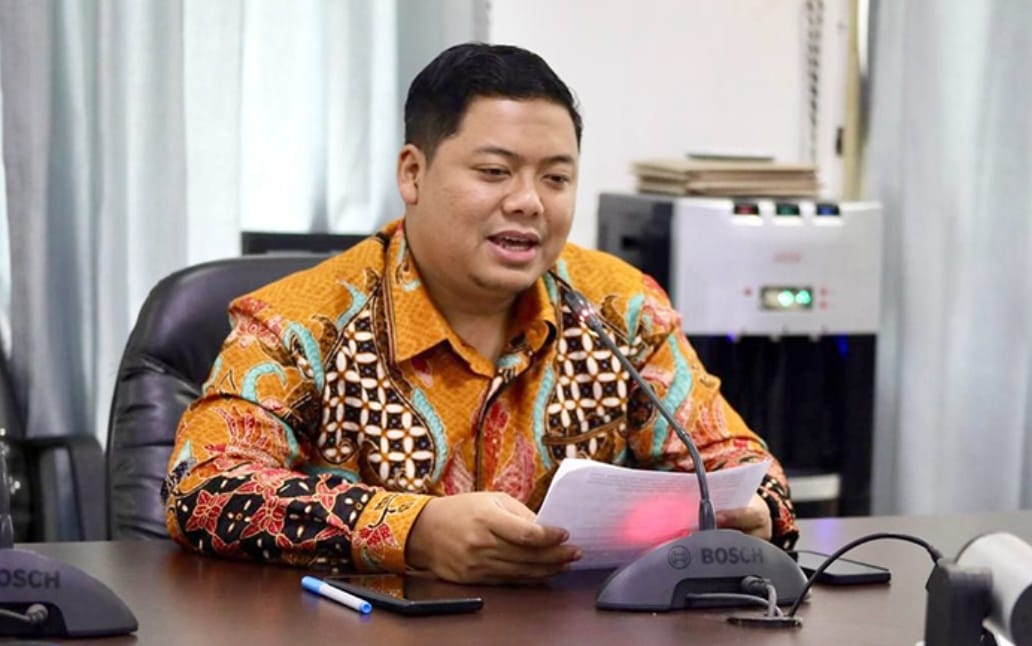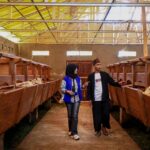Commission I has held several working meetings with the Regional Financial and Asset Agency (BKAD) of Bandung City.
One of these meetings was to address territorial issues concerning assets owned by the Bandung City Government that face claims from residents, both in the Administrative Court and through other legal demands.
“This certainly disrupts public services, such as in several sub-district offices where land ownership status is being challenged. Similarly, community health centers and schools have also faced legal claims,” explained the Secretary of Commission I.
Therefore, Commission I discussed this issue in working meetings to find tactical solutions.
Moreover, this asset issue has also drawn attention from the Supreme Audit Agency. By 2024, the agency recorded 11,536 plots of land owned by the City Government that were leased but lacked usage rights certificates.
“In Commission I, we have taken steps by requesting BKAD and the legal department to coordinate with the National Land Agency, with the target of resolving 5,000 land plots annually, so that within two years maximum, all Bandung City Government assets will be certified,” the secretary stated.
Currently, there is already a system supporting asset data management in the Bandung City Government, namely the Amanah System (Land Lease Management Application).
This system is managed by BKAD of Bandung City and is expected to secure land assets from unilateral claims and ensure proper asset documentation.
“We consistently provide support through monitoring, controlling, and creating legal products in the form of regional regulations to protect these assets,” the official said.
From the budget perspective, Commission I will certainly provide full support for certification. Moreover, this is mandated by law, requiring that Bandung City Government assets must be protected and provide benefits for public services.
“It is hoped that the two-year certification target can be achieved. We support and continue to encourage BKAD, the Legal Department, and DPKP to coordinate with the National Land Agency,” the official concluded.
Administrative Court
An Administrative Court is a specialized judicial body that handles disputes between citizens and public authorities. Its origins trace back to 19th-century France with the establishment of the Conseil d’État, creating a separate legal system to review the legality of government actions. These courts ensure that the state and its agencies operate within the law and protect individuals from administrative abuse of power.
Supreme Audit Agency
The Supreme Audit Agency (Badan Pemeriksa Keuangan or BPK) is Indonesia’s highest state institution responsible for auditing the management and accountability of state finances. It was established in 1946, shortly after Indonesia’s independence, based on the 1945 Constitution. The agency operates independently to ensure transparency and accountability in the use of public funds.
National Land Agency
The National Land Agency is a government body responsible for managing and administering land-related matters, such as land registration, surveying, and land use planning. It was established to create a more systematic and efficient system for land administration, often in response to historical challenges with land ownership, informal settlements, or colonial land systems. Its work is crucial for ensuring secure land rights, supporting development, and reducing land disputes.
Amanah System
The Amanah System is not a physical place or cultural site, but a financial and ethical concept in Islamic finance. It refers to a trust-based system where one party holds and manages assets or funds on behalf of another, with a strong emphasis on honesty, integrity, and responsibility. Its history is rooted in Islamic jurisprudence, which has for centuries mandated that financial dealings be conducted with transparency and a duty to protect the interests of the beneficiary.
Land Lease Management Application
A Land Lease Management Application is a digital tool used for administering land lease agreements, not a physical place or cultural site. These applications emerged with the digitization of property management to streamline processes like contract tracking, payment management, and compliance monitoring. They represent a modern approach to managing land use rights and leaseholder relationships efficiently.
BKAD
I am unable to provide a summary for “BKAD” as it is not a widely recognized or documented place or cultural site. The acronym could refer to a local organization, a lesser-known location, or a specific internal code. For an accurate summary, more specific context or the full name would be required.
Legal Department
A Legal Department is an administrative unit within an organization, not a historical or cultural site. Its function is to manage all legal matters, including compliance, contracts, and litigation. The modern in-house legal department evolved in the 20th century as corporations grew in complexity and sought to manage legal risks internally.
DPKP
I am unable to provide a summary for “DPKP” as it is not a recognized place or cultural site. The acronym could refer to several different organizations or concepts, but none are widely known as a tourist destination or a cultural heritage location. Please verify the name or provide more context.






